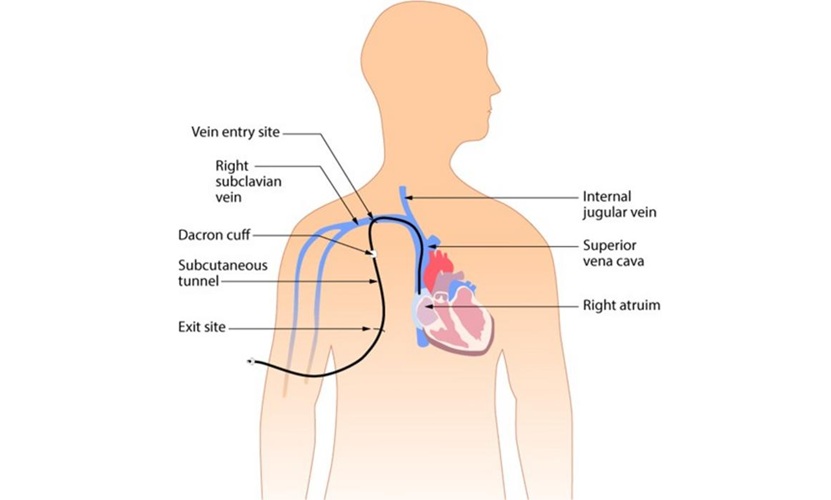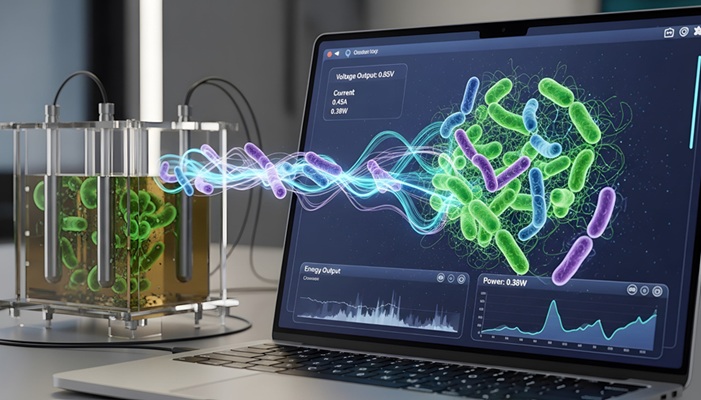Biomarkers Found for COVID-19 Condition in Children May Help Predict Disease Severity and Develop MIS-C Therapies
|
By HospiMedica International staff writers Posted on 01 Sep 2021 |

Illustration
Researchers have found biomarkers that could help predict the severity of a rare but serious complication in children with COVID-19.
The findings of the study led by Cedars-Sinai (Los Angeles, CA, USA) may help predict disease severity and develop therapies for Multisystem Inflammatory Syndrome in Children (MIS-C). This rare but serious inflammatory condition that affects children who contract COVID-19 produces a distinctive pattern of biomarkers that may help physicians predict disease severity and also aid researchers in developing new treatments, according to findings of the study.
The Cedars-Sinai study focused on MIS-C, an inflammatory response involving multiple organs that can occur weeks after infection with SARS-CoV-2, the virus that causes COVID-19. The investigators examined a small group of patients to identify an array of pathogenic pathways culminating in MIS-C, along with proteins in the blood with potential to act as biomarkers to forecast the severity of the syndrome and help drive treatment decisions. A picture is emerging of MIS-C as an autoimmune disease in which the immune system becomes overactive and mistakenly attacks the body's own organs, according to the researchers. This process may be triggered by widespread tissue damage caused by the SARS-CoV-2 infection.
Children with MIS-C often present symptoms similar to those observed in the so-called cytokine storm, an inflammatory response that can be fatal in COVID-19 patients. These symptoms may include persistent fever and gastrointestinal, respiratory, neurological and cardiovascular problems, such as shock and heart muscle inflammation. Previous research had uncovered similar biological processes involved in MIS-C, the cytokine storm and toxic shock syndrome - a rare, life-threatening complication of bacterial infections. For the new study, the research team adopted an interdisciplinary approach in which they examined 69 children, including those with and without MIS-C and seven with another pediatric inflammatory disorder - Kawasaki disease. Future investigations are needed to validate the findings in a larger patient group, according to the researchers.
"We deployed an array of advanced techniques, including proteomics, RNA sequencing and analyses of antibodies and immune system signaling," said Jennifer Van Eyk, PhD, director of the Advanced Clinical Biosystems Research Institute in the Smidt Heart Institute at Cedars-Sinai, and an expert on proteomics - the study of proteins at the molecular and genetic levels. "By combining forces, we are better able to accelerate scientific discoveries to keep pace with the rapidly evolving pandemic and to inform clinical decisions."
Related Links:
Cedars-Sinai
The findings of the study led by Cedars-Sinai (Los Angeles, CA, USA) may help predict disease severity and develop therapies for Multisystem Inflammatory Syndrome in Children (MIS-C). This rare but serious inflammatory condition that affects children who contract COVID-19 produces a distinctive pattern of biomarkers that may help physicians predict disease severity and also aid researchers in developing new treatments, according to findings of the study.
The Cedars-Sinai study focused on MIS-C, an inflammatory response involving multiple organs that can occur weeks after infection with SARS-CoV-2, the virus that causes COVID-19. The investigators examined a small group of patients to identify an array of pathogenic pathways culminating in MIS-C, along with proteins in the blood with potential to act as biomarkers to forecast the severity of the syndrome and help drive treatment decisions. A picture is emerging of MIS-C as an autoimmune disease in which the immune system becomes overactive and mistakenly attacks the body's own organs, according to the researchers. This process may be triggered by widespread tissue damage caused by the SARS-CoV-2 infection.
Children with MIS-C often present symptoms similar to those observed in the so-called cytokine storm, an inflammatory response that can be fatal in COVID-19 patients. These symptoms may include persistent fever and gastrointestinal, respiratory, neurological and cardiovascular problems, such as shock and heart muscle inflammation. Previous research had uncovered similar biological processes involved in MIS-C, the cytokine storm and toxic shock syndrome - a rare, life-threatening complication of bacterial infections. For the new study, the research team adopted an interdisciplinary approach in which they examined 69 children, including those with and without MIS-C and seven with another pediatric inflammatory disorder - Kawasaki disease. Future investigations are needed to validate the findings in a larger patient group, according to the researchers.
"We deployed an array of advanced techniques, including proteomics, RNA sequencing and analyses of antibodies and immune system signaling," said Jennifer Van Eyk, PhD, director of the Advanced Clinical Biosystems Research Institute in the Smidt Heart Institute at Cedars-Sinai, and an expert on proteomics - the study of proteins at the molecular and genetic levels. "By combining forces, we are better able to accelerate scientific discoveries to keep pace with the rapidly evolving pandemic and to inform clinical decisions."
Related Links:
Cedars-Sinai
Latest COVID-19 News
- Low-Cost System Detects SARS-CoV-2 Virus in Hospital Air Using High-Tech Bubbles
- World's First Inhalable COVID-19 Vaccine Approved in China
- COVID-19 Vaccine Patch Fights SARS-CoV-2 Variants Better than Needles
- Blood Viscosity Testing Can Predict Risk of Death in Hospitalized COVID-19 Patients
- ‘Covid Computer’ Uses AI to Detect COVID-19 from Chest CT Scans
- MRI Lung-Imaging Technique Shows Cause of Long-COVID Symptoms
- Chest CT Scans of COVID-19 Patients Could Help Distinguish Between SARS-CoV-2 Variants
- Specialized MRI Detects Lung Abnormalities in Non-Hospitalized Long COVID Patients
- AI Algorithm Identifies Hospitalized Patients at Highest Risk of Dying From COVID-19
- Sweat Sensor Detects Key Biomarkers That Provide Early Warning of COVID-19 and Flu
- Study Assesses Impact of COVID-19 on Ventilation/Perfusion Scintigraphy
- CT Imaging Study Finds Vaccination Reduces Risk of COVID-19 Associated Pulmonary Embolism
- Third Day in Hospital a ‘Tipping Point’ in Severity of COVID-19 Pneumonia
- Longer Interval Between COVID-19 Vaccines Generates Up to Nine Times as Many Antibodies
- AI Model for Monitoring COVID-19 Predicts Mortality Within First 30 Days of Admission
- AI Predicts COVID Prognosis at Near-Expert Level Based Off CT Scans
Channels
Artificial Intelligence
view channelCritical Care
view channel
AI Tool Identifies Trauma Patients Requiring Blood Transfusions Before Reaching Hospital
Severe bleeding is one of the most common and preventable causes of death after traumatic injury. However, current tools often fail to accurately identify which patients urgently require blood transfusions,... Read more
New Clinical Guidelines to Reduce Central Line-Associated Bloodstream Infection
Central venous catheters are essential in intensive care units, delivering life-saving medications, monitoring cardiovascular function, and supporting blood purification. However, their widespread use... Read moreSurgical Techniques
view channelAI-Based OCT Image Analysis Identifies High-Risk Plaques in Coronary Arteries
Lipid-rich plaques inside coronary arteries are strongly associated with heart attacks and other major cardiac events. While optical coherence tomography (OCT) provides detailed images of vessel structure... Read moreNeural Device Regrows Surrounding Skull After Brain Implantation
Placing electronic implants on the brain typically requires removing a portion of the skull, creating challenges for long-term access and safe closure. Current methods often involve temporarily replacing the skull or securing metal plates, which can lead to complications such as skin erosion and additional surgeries.... Read morePatient Care
view channel
Revolutionary Automatic IV-Line Flushing Device to Enhance Infusion Care
More than 80% of in-hospital patients receive intravenous (IV) therapy. Every dose of IV medicine delivered in a small volume (<250 mL) infusion bag should be followed by subsequent flushing to ensure... Read more
VR Training Tool Combats Contamination of Portable Medical Equipment
Healthcare-associated infections (HAIs) impact one in every 31 patients, cause nearly 100,000 deaths each year, and cost USD 28.4 billion in direct medical expenses. Notably, up to 75% of these infections... Read more
Portable Biosensor Platform to Reduce Hospital-Acquired Infections
Approximately 4 million patients in the European Union acquire healthcare-associated infections (HAIs) or nosocomial infections each year, with around 37,000 deaths directly resulting from these infections,... Read moreFirst-Of-Its-Kind Portable Germicidal Light Technology Disinfects High-Touch Clinical Surfaces in Seconds
Reducing healthcare-acquired infections (HAIs) remains a pressing issue within global healthcare systems. In the United States alone, 1.7 million patients contract HAIs annually, leading to approximately... Read moreHealth IT
view channel
EMR-Based Tool Predicts Graft Failure After Kidney Transplant
Kidney transplantation offers patients with end-stage kidney disease longer survival and better quality of life than dialysis, yet graft failure remains a major challenge. Although a successful transplant... Read more
Printable Molecule-Selective Nanoparticles Enable Mass Production of Wearable Biosensors
The future of medicine is likely to focus on the personalization of healthcare—understanding exactly what an individual requires and delivering the appropriate combination of nutrients, metabolites, and... Read moreBusiness
view channel
Medtronic to Acquire Coronary Artery Medtech Company CathWorks
Medtronic plc (Galway, Ireland) has announced that it will exercise its option to acquire CathWorks (Kfar Saba, Israel), a privately held medical device company, which aims to transform how coronary artery... Read more
Medtronic and Mindray Expand Strategic Partnership to Ambulatory Surgery Centers in the U.S.
Mindray North America and Medtronic have expanded their strategic partnership to bring integrated patient monitoring solutions to ambulatory surgery centers across the United States. The collaboration... Read more
FDA Clearance Expands Robotic Options for Minimally Invasive Heart Surgery
Cardiovascular disease remains the world’s leading cause of death, with nearly 18 million fatalities each year, and more than two million patients undergo open-heart surgery annually, most involving sternotomy.... Read more








.jpg)










